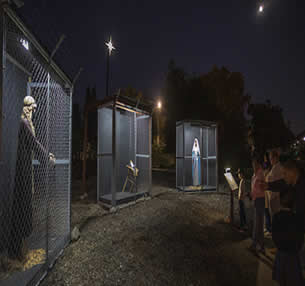Scientists tell us that the human mind is capable of imagining quite a small number of individual entities: between 6.000, 60.000, 600.000 and 6.000.000 we can distinguish rationally but at the level of imagining such numbers our powers run out at 6.000 (or some such figure). This is not a major handicap when talking about cigarettes or fruit-flies, but becomes very serious when we are talking about people, particularly about victims of violence. The purpose of this blog is to introduce those who do not know Etty Hillesum to this marvellous person and to suggest a way of combating the dangerous tendency to massively underestimate the difference between 6.000 and 6.000.000. Etty (Esther) was born into a “liberal” (i.e. non-practicing) Jewish family in Holland at the beginning of the First World War. Her mother was of Russian origin and transmitted much of this culture to Etty. Her father was a professor of classics and something of an introvert. There were two boys in the family, Jaap and Mischa, the former a medical doctor, the latter a gifted musician but afflicted with psychiatric problems. Everything changed for this family when the German army invaded Holland in May 1940. From…
In every system of morality, which I have hitherto met with, I have always remark’d, that the author proceeds for some time in the ordinary ways of reasoning, and establishes the being of a God, or makes observations concerning human affairs; when all of a sudden I am surpriz’d to find, that instead of the usual copulations of propositions, is, and is not, I meet with no proposition that is not connected with an ought, or an ought not. This change is imperceptible; but is however, of the last consequence. For as this ought, or ought not, expresses some new relation or affirmation, ‘tis necessary that it shou’d be observ’d and explain’d; and at the same time that a reason should be given; for what seems altogether inconceivable, how this new relation can be a deduction from others, which are entirely different from it». David Hume, Treatise, III.i. Anyone with some experience in reading theses in moral theology will probably have had a reaction similar to that described by David Hume (1711-1776) in this famous paragraph. In fact, words such as “ought”, “should” and “must” are often introduced without further explanation. Thus far, it is hard to disagree with…
How does the Bible help us to think about migration? The relationship between the Bible and morality is notoriously complex (see the document of the Pontifical Biblical Commission, The Bible and Morality, 2008). Looking to the Scripture for enlightenment and guidance on any moral issue requires prudence, intellectual honesty and humility. All of this is true in a particular way concerning the contemporary question of migration because it is such a sensitive and controversial issue. In this brief reflection we will consider just one biblical text, perhaps the most important verse in the Bible on this question: “The stranger who resides with you shall be to you as one of your citizens; you shall love him as yourself, for you were strangers in the land of Egypt: I the Lord am your God” (Leviticus, 19,34). The verse can be broken down into three parts: a moral obligation concerning the treatment of strangers, the historical fact that the people of Israel were once strangers and the assertion by God of his authority over his people. The key word linking these three parts is the word “for”. Taken literally, this term expresses the idea that one assertion follows logically from another, but…
The Politics of Migration: a Total Eclipse of Faith by Ideology? On the 25th February 2019 there was a panel discussion in the Alphonsian Academy, Rome, on “Faith and Ideology”. It is a vast question which embraces many forms of faith, many forms of ideology and the various forms of interaction between the two. This interaction, often conflictual in nature, manifests itself in the context of numerous concrete questions of our time: the environment, Islamic terrorism, nuclear rearmament and so forth. In this short piece we will consider how faith and ideology interact when faced with the question of migration. There is a real danger that ideology, in its various forms, is in danger of producing a total eclipse of Christian faith on this question. To understand this metaphor we may think of the Christian faith as the Sun (the “light of the world”, in scriptural terms). This Sun sheds light on all human history, including the contemporary history of migration. It allows us to view this immensely complex question with faith, hope, charity, justice and truth. The metaphor of the total eclipse suggests that the light of the Sun is blocked out by the Moon, which intervenes between…




